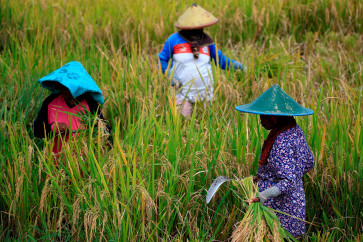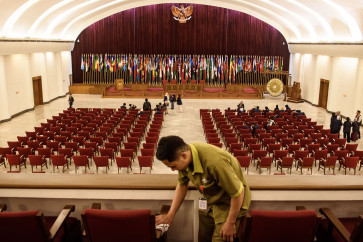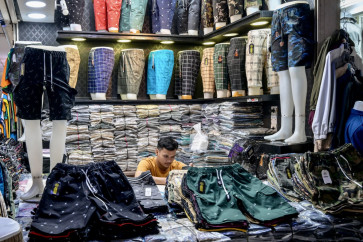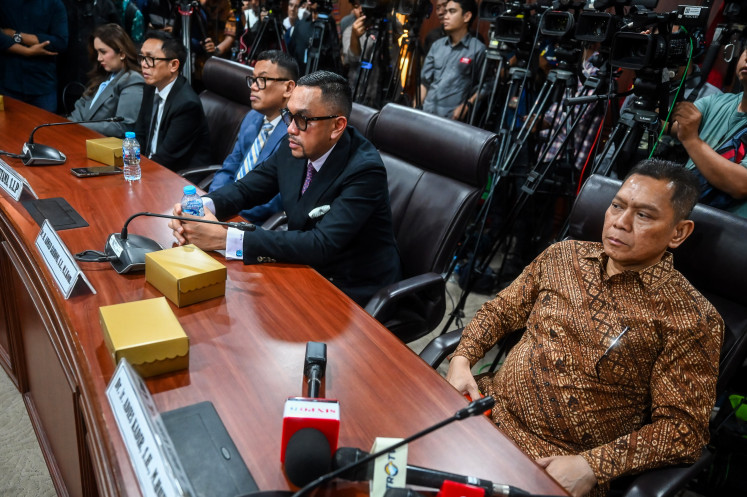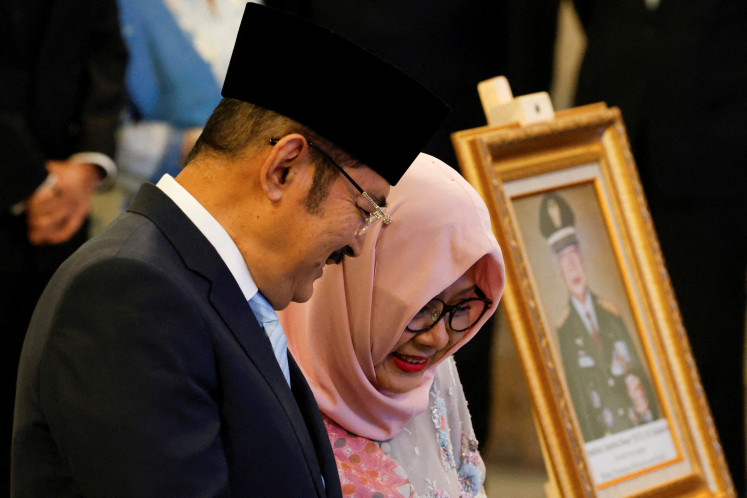Popular Reads
Top Results
Can't find what you're looking for?
View all search resultsPopular Reads
Top Results
Can't find what you're looking for?
View all search resultsDengue cases soar but KLB level not reached
Despite a soaring number of dengue fever cases, far surpassing the numbers recorded in the same period last year, the Jakarta Health Agency has refrained from declaring a “extraordinary occurrence” (KLB), as the number has not yet reached the threshold set by the agency
Change text size
Gift Premium Articles
to Anyone
D
espite a soaring number of dengue fever cases, far surpassing the numbers recorded in the same period last year, the Jakarta Health Agency has refrained from declaring a “extraordinary occurrence” (KLB), as the number has not yet reached the threshold set by the agency.
As of Sunday, the agency had recorded 2,343 dengue fever cases with one fatality. A total of 134 cases have been recorded in Central Jakarta, 220 cases in North Jakarta, 651 cases in West Jakarta, 651 cases in South Jakarta, 785 cases in East Jakarta and two cases in Thousand Islands regency.
In February this year, the city recorded 1,354 dengue fever cases, more than 10 times the 198 cases recorded in the same period in 2018. Two people died from dengue fever last year.
The agency will only declare a KLB status if the number of dengue fever cases reaches 3,500 in March, or 4,250 in April.
“We are still on alert as the rate is above average, although it has yet to reach KLB status,” Jakarta Health Agency head Widyastuti told reporters on Monday.
She warned that the city was currently undergoing a dengue fever epidemic in which anyone could contract the disease through the bites from Aedes Aegypti mosquitoes, which carry the dengue virus.
Widyastuti said the agency had also identified 84 community units (RW) that were prone to dengue fever, with each recording at least three cases.
She said the agency would intensify its efforts to curb dengue fever, such as by deploying more jumantik (volunteer mosquito larvae controllers) in all 84 RWs.
The agency is also cooperating with the Jakarta Meteorology, Climatology and Geophysics Agency (BMKG) to
anticipate potential dengue fever hotspots based on weather predictions.
“According to BMKG’s prediction, it will be humid from January to March, so mosquitoes will proliferate,” Widyastuti said.
The agency has provided probability predictions for the proliferation of Aedes Aegypti mosquitoes at dbd.bmkg.go.id. According to the predictions for March, based on the expected humidity levels, East Jakarta and South Jakarta have an 81 percent probability of experiencing a proliferation of Aedes Aegypti mosquitoes, while West Jakarta has an 80 percent probability, Central Jakarta 78 percent and North Jakarta 77 percent.
The predicted incident rate for March is also high, with South Jakarta, East Jakarta and West Jakarta categorized as dangerous with 17.3, 13.5 and 10 cases of dengue fever per 100,000 people, while Central Jakarta and North Jakarta are on alert with 8.9 and 5.4 cases per 100,000, respectively.
Widyastuti advised everyone to visit the website as a precaution to help curb the proliferation of mosquitoes in their area.
She said that jumantik played an important role in curbing dengue fever in hotspots such as residential and school areas.
Children aged 7 to 14 years old are the most prone to dengue fever, with an incidence rate of 70.24 per 100,000 in 2018, the highest among all age groups.
“Mosquito bites usually occur around 10 a.m. and 3 p.m., so if we only take precautions in residential areas it will be hit and miss,” Widyastuti said.
Widyastuti also reminded people to take preventive measures around their homes by applying the “3M” burying-draining-covering method to remove any standing water that mosquitoes could lay eggs in.
She added that when emptying water containers, people should also scrub the containers clean as mosquito eggs could sometimes stick to the sides.
She also advised people to look out for others who come down with a fever that lasted two to seven days, as it could be dengue fever.


